Desperately seeking alternatives: Uncovering assumptions &/or outcomes about the student research process
Ps. This is not about plagiarism, using or not using Wikis. It is simply about the value and utility of national resources for an otherwise unattained mission in the academic life and times.
- The End of the College Essay, By Rebecca Schuman :
- Keep the ‘Research,’ Ditch the ‘Paper’ by Marc Bousquet, The Chronicle
- Why I Hate Grading, by Kate Antonova
- My Professor Hates Me!: Dos & Don’ts of Dealing
- Harvard Professor Gives Two Sets Of Marks To Combat Grade Inflation
- I think the required Humanities courses in college are a waste of time
- Barbara Valentine, Undergraduate research behavior: Using focus groups to generate theory The Journal of Academic Librarianship, Volume 19, Issue 5, November 1993, Pages 300–304
- Student Learning Outcomes—A Focus on Results, by Bill Scroggins "This series of reflections are intended to address getting useful results from the SLO process—maximizing utility and minimizing futility. (That little “f” really makes a difference, doesn’t it?)"
- Tools and Techniques for Course Improvement: A Handbook for Course Review and Assessment of Student Learning, Compiled, adapted, and edited by Richard Frye, Gary R. McKinney, Joseph E. Trimble
- Brandt, LaRoy S.E., and Jack Lee Hayes. "Broader impacts of undergraduate research at a community college: opening doors to new ideas." Council on Undergraduate Research Quarterly 33.1 (2012): 17
- Carol Kulthau, Betty Turok, Mary W. George, Robert J. Belvin, Validating a Model of the Search Process: A Comparison of Academic, Public and School Library Users, Library & Information Science Research, 12 (1990), pp. 5–31
- Evan Farber, Alternative to the Term Paper: See, for instance L. Hardesty, J. Hastreiter, D. Henderson (Eds.), Bibliographic Instruction in Practice, Pierian Press, Ann Arbor (1993), pp. 89–96
- Undergraduate research experiences: The translation of science education from reading to doing, by Suzzette F. Chopin, The Anatomical Record, Volume 269, Issue 1, pages 3–10, 15 February 2002
- Jane Keefer, The Hungry Rats Syndrome: Library Anxiety, Information Literacy and the Academic Reference Process, RQ, 32 (1993), pp. 333–339
- Institutionalizing Undergraduate Research for Geology Majors through Creative Inquiry Experiences by Wagner, John R; Journal of College Science Teaching, ISSN 0047-231X, 2010, Volume 39, Issue 6, pp. 30 - 37
- Ten Time-Saving Tips for Undergraduate Research Mentors, by Coker, Jeffrey Scott and Davies, Eric Journal of Natural Resources and Life Sciences Education, ISSN 1059-9053, 2006, Volume 35, pp. 110 - 112
- Undergraduate research experiences: the translation of science education from reading to doing by Chopin, Suzzette F The Anatomical record, ISSN 0003-276X, 02/2002, Volume 269, Issue 1, pp. 3 - 10
- Broader impacts of undergraduate research at a community college: opening doors to new ideas by Brandt, LaRoy S.E and Hayes, Jack Lee, Council on Undergraduate Research Quarterly, ISSN 1072-5830, 2012, Volume 33, Issue 1, p. 17
- Two models for an effective undergraduate research experience in physiology and other natural sciences by David C. Randall; Frank H. Wilbur; Timothy J. Burkholder Advances in Physiology Education, ISSN 1043-4046, 06/2004, Volume 28, Issue 2, pp. 68 - 72
- Peer teaching and mentoring: the case of undergraduate research fellows, Sloane, Amy Council on Undergraduate Research Quarterly, ISSN 1072-5830, 2010, Volume 31, Issue 2, p. 11
- Futility of Modern Research | Spiritual Science Research Foundation
- Learning strategies and undergraduate research, by Polack-Wahl, Jennifer and Anewalt, Karen
Everybody in college hates papers. Students hate writing them so much that they buy, borrow, or steal them instead. Plagiarism is now so commonplace that if we flunked every kid who did it, we’d have a worse attrition rate than a MOOC. And on those rare occasions undergrads do deign to compose their own essays, said exegetic masterpieces usually take them all of half an hour at 4 a.m. to write, and consist accordingly of “arguments” that are at best tangentially related to the coursework, font-manipulated to meet the minimum required page-count. Oh, “attitudes about cultures have changed over time”? I’m so glad you let me know."
Labels: Academic standards, Education, outcome, Research



0 Comments:
Post a Comment
<< Home